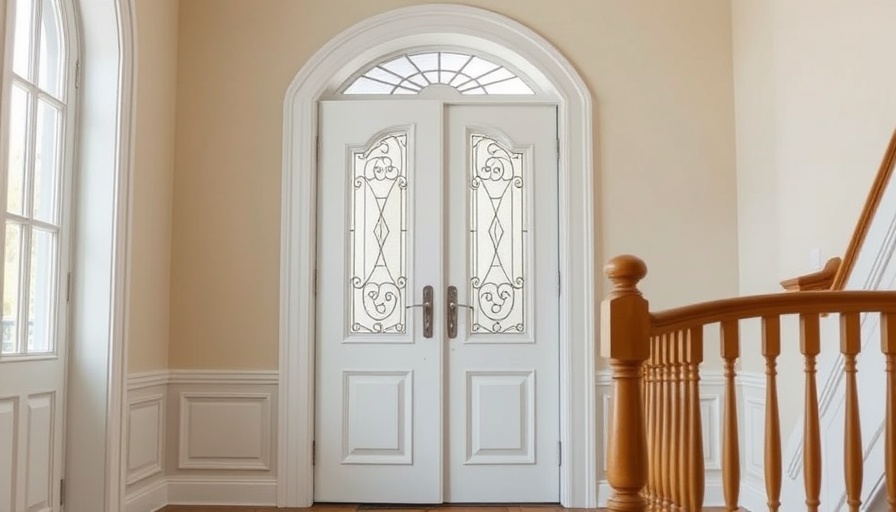
A Fresh Start: Why Changing Locks is Essential for New Homeowners
Purchasing a new home is a thrilling journey, filled with dreams and potential. However, once you’ve taken the leap and received the keys, ensuring your new sanctuary is secure should be one of your top priorities. Many homeowners underestimate the importance of changing the locks on their doors, assuming that the existing locks are sufficient. But consider this: the previous owner may have distributed copies of their house keys, or the locks may have been outdated. Changing the locks not only adds a vital layer of security but also gives you peace of mind. This simple step can prevent unwanted surprises later on.
Your Smart Lock Options: Convenience Meets Security
As you contemplate changing your locks, consider embracing modern technology with smart locks. These lock systems not only enhance security but also provide convenience, allowing you to control access to your home via smartphone apps. Imagine the ease of unlocking your door without fumbling for keys or offering temporary access to guests or service workers while you are away. Invest in a smart lock that suits your lifestyle—something you can easily monitor and control from anywhere.
Step-by-Step Guide to Changing Your Locks
Changing locks may seem daunting, but it’s a straightforward task when broken down into manageable steps. Here's how to approach the process:
- 1. Inventory All Your Doors: Begin by making a list of all the external doors that need new locks. It’s advisable to replace the locks on all these doors, not just the front one, to fully secure your home.
- 2. Choose and Purchase New Locks: Selecting the right locks is crucial. Often, sticking with the same brand helps ensure a seamless fit. Don’t forget to buy the necessary tools, such as a screwdriver and a measuring tape.
- 3. Remove the Old Locks: Using your screwdriver, remove the screws securing the existing locks. Take care to follow proper procedures to avoid damaging your doors.
- 4. Install Your New Locks: Detailed instructions typically accompany your new lock kit. Ensure you follow them closely as proper installation is key for reliable functionality.
- 5. Test Everything: After installation, it’s essential to test the locks to ensure they function properly. Faulty locks can provide a false sense of security, so it’s better to fix any issues upfront.
Understanding Your Options: Professional Installation vs. DIY
As you consider changing locks, you may wonder whether to tackle this as a DIY project or hire a professional. For many, this task is entirely manageable on your own. However, if you’re unsure about your abilities or simply want the peace of mind that comes with a professional’s touch, don’t hesitate to seek help. Weighing your comfort level with tools and the specifics of your door’s locking mechanism can help guide your decision.
Future-Proofing Your Home's Security
Once your locks are updated, think ahead. Regularly assess your home security needs as your family grows or as you acquire valuable possessions. Consider additional upgrades like motion sensor lights or enhanced doorbell cameras, which can complement your new locks effectively. As technology advances, staying proactive about security will keep your home safe and protect your loved ones.
Your Next Steps: Engage With Your Community
Finally, don’t forget to engage with your community. Neighbors can provide useful insights and support regarding local security concerns. Consider joining local online groups or attending town meetings to discuss home security experiences and solutions.
In conclusion, changing the locks in your new home is an essential step in establishing a safe and secure environment. It not only protects you from potential risks associated with inherited keys but also allows you to upgrade your security measures based on your specific needs. Take the initiative today, and safeguard your home for the future.
For more valuable information about home security and tips for new homeowners, consider exploring local resources or home improvement workshops in your area.
 Add Row
Add Row  Add
Add 



Write A Comment